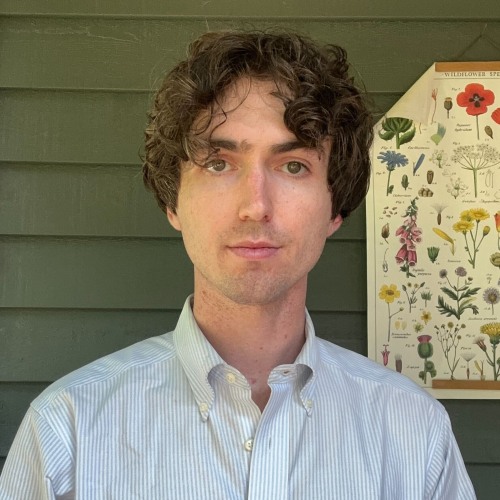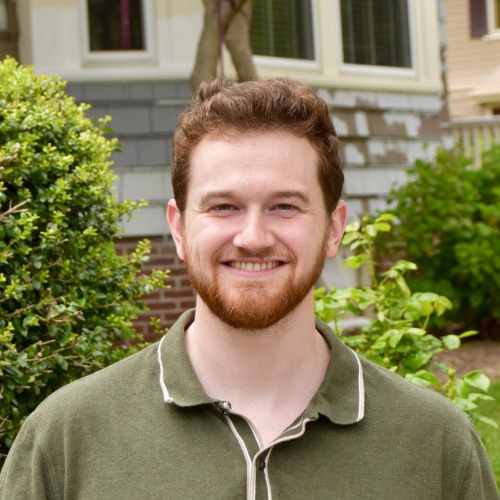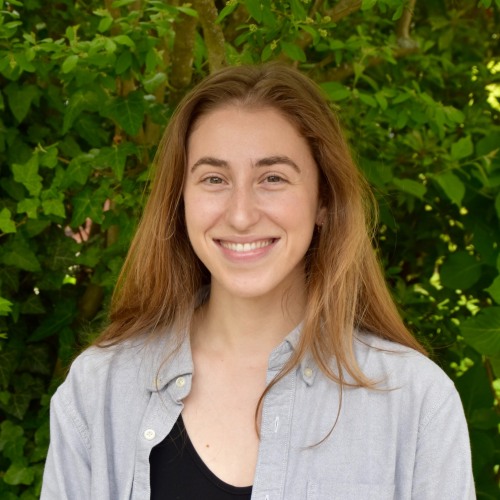Graduate Fellows
Graduate Fellows
-
Ahmad Abu Ahmad
2025–26 Graduate Fellow, Ph.D. Candidate in Comparative LiteratureAhmad Abu Ahmad is a sixth-year doctoral candidate in the Department of Comparative Literature. His research is deeply interdisciplinary, engaging Arabic and comparative literature, Palestinian studies, literary multilingualism and the politics of (mis)translation, settler-colonialism and nationalism, critical history, memory and imaginations, visual politics, and violence. He also works in literary translation, and his writings have appeared in Jerusalem Quarterly and SubStance. His dissertation, titled “The Poetics and Politics of Death in Palestinian Literature and Film,” expands our understanding of conditioning Palestinians to precarious lives and irrevocable deaths under Israeli settler colonialism. In parallel, it examines the ways Palestinians uphold deaths that resist finality and anonymity. Innate to his interrogation is qualifying death beyond the biological cessation of life and probing a multiplicity of death in life, and deaths that initiate posthumous continuities. He interrogates the life-death continuum in Palestinian film and prose, with a secondary focus on poetry, examining the touchability of the Palestinian corpse vis-à-vis heterogeneous intimacies, the politics of names and (de)naming, language as structure of and for death (e.g., untranslatability and nonreciprocity), and the politics of seeing/foreseeing death. He holds a B.A. in English and an LLB from Tel Aviv University.
-

Andrew Clark
2025–26 Graduate Fellow, Ph.D. Candidate in French and Francophone StudiesAndrew Clark is a fourth-year doctoral candidate in the Department of French and Francophone Studies. His dissertation, “Unlived Experience in the French Novel, 1830–1997,” studies how the novel expresses imperiality through erasure, obfuscation, and indirect reference. Of particular interest to this project are works of historical fiction that do not explicitly treat colonial history but nevertheless betray important currents in contemporary imperial ideology. Special focus is given to the origins of the secular state and the role of fascism in post-war republicanism. Clark holds an M.A. in French from Boston College and a B.A. in Physics and Romance Languages from the University of North Carolina at Chapel Hill. His work has been published or is forthcoming in The French Review, Contemporary French & Francophone Studies, Science & Society, and French Studies.
-

Max Foley-Keene
2025–26 Graduate Fellow, Ph.D. Candidate in Political ScienceMax Foley-Keene is a sixth-year doctoral candidate in the Department of Political Science, specializing in political theory. His project investigates the habits, dispositions, and forms of activity that might animate a project wherein human beings freely and democratically decide how they should live with the non-human world. It asks how existing accounts of civic virtue might change in the light of our ecological challenges. It also considers the ecological virtues that ought to guide human interaction with the more-than-human. Ultimately, he aims to develop an account of an “eco-socialist civic virtue,” a form of activity, constituted by collective habits of self-government and abiding ecological dispositions, that might guide a genuinely emancipatory environmental politics. At Brown University, he has received the P. Terrence Hopmann Award for Excellence in Teaching. His academic work has been published in Philosophy & Social Criticism, and he writes frequently for Commonweal magazine. He holds a B.A. in Political Science from the University of Maryland.
-

Celia Stern
2025–26 Graduate Fellow, Ph.D. Candidate in Religious StudiesCelia Stern is a sixth-year doctoral candidate in the Department of Religious Studies with a focus in Religion and Critical Thought. Her scholarship primarily engages religion and politics, Jewish thought, political theory, and literature. Her dissertation project argues that a new take on performativity in ritual theory — one that takes examples of failure seriously, and as a starting point — offers a better picture of ritual (as able to expand, improvise, and go wrong) and a better practice of memory. The project thus makes a theoretical intervention in ritual theory in order to talk about the politics of Holocaust memory and the possibilities that narratives of failure (and narrative failure) may offer us in the face of (for the moment) steadfast conventions and norms. Stern holds a B.A. in Sociology from Washington University in St. Louis.